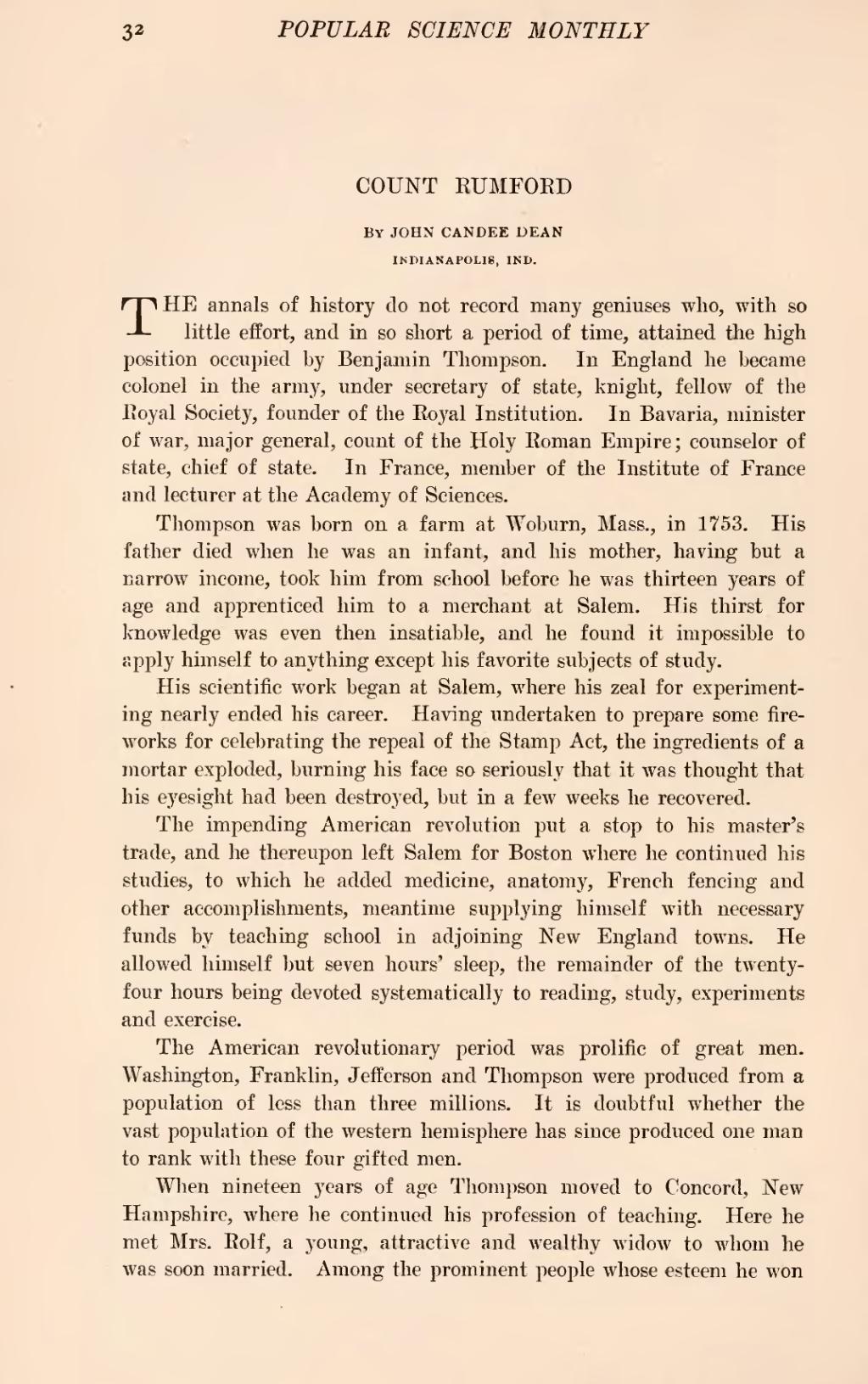| COUNT RUMFORD |
By JOHN CANDEE DEAN
INDIANAPOLIS, IND.
THE annals of history do not record many geniuses who, with so little effort, and in so short a period of time, attained the high position occupied by Benjamin Thompson. In England he became colonel in the army, under secretary of state, knight, fellow of the Royal Society, founder of the Royal Institution. In Bavaria, minister of war, major general, count of the Holy Roman Empire; counselor of state, chief of state. In France, member of the Institute of France and lecturer at the Academy of Sciences.
Thompson was born on a farm at Woburn, Mass., in 1753. His father died when he was an infant, and his mother, having but a narrow income, took him from school before he was thirteen years of age and apprenticed him to a merchant at Salem. His thirst for knowledge was even then insatiable, and he found it impossible to apply himself to anything except his favorite subjects of study.
His scientific work began at Salem, where his zeal for experimenting nearly ended his career. Having undertaken to prepare some fireworks for celebrating the repeal of the Stamp Act, the ingredients of a mortar exploded, burning his face so seriously that it was thought that his eyesight had been destroyed, but in a few weeks he recovered.
The impending American revolution put a stop to his master's trade, and he thereupon left Salem for Boston where he continued his studies, to which he added medicine, anatomy, French fencing and other accomplishments, meantime supplying himself with necessary funds by teaching school in adjoining New England towns. He allowed himself but seven hours' sleep, the remainder of the twenty-four hours being devoted systematically to reading, study, experiments and exercise.
The American revolutionary period was prolific of great men. Washington, Franklin, Jefferson and Thompson were produced from a population of less than three millions. It is doubtful whether the vast population of the western hemisphere has since produced one man to rank with these four gifted men.
When nineteen years of age Thompson moved to Concord, New Hampshire, where he continued his profession of teaching. Here he met Mrs. Rolf, a young, attractive and wealthy widow to whom he was soon married. Among the prominent people whose esteem he won

